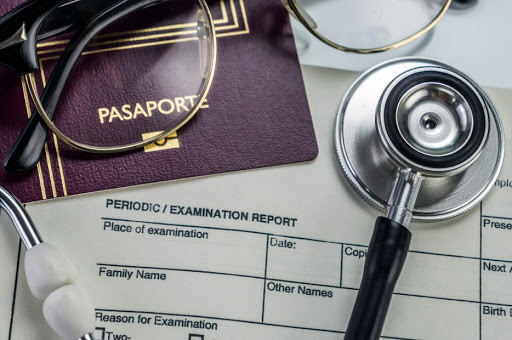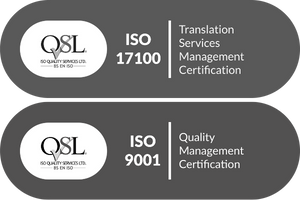
Two years after graduating from college, I decided that I wanted to spend some time living abroad. I had lived in Italy during a study abroad program and had the time of my life! This time, I wanted to push myself further outside my comfort zone and decided to head to Asia. I got a job teaching English at a kindergarten in Shenzhen, China and I felt ready to travel. Yet, this time, there was more research to be done because the last time I lived abroad I had been diagnosed with a chronic illness after a trip to the emergency room in Florence, Italy. That being said, I had no intention of letting that stop me from moving abroad again. The medication that I receive in the States is partly covered by health insurance but still costs me thousands of dollars out of pocket. After a thorough investigation, I found out that my medication was completely covered by national health insurance in China, which I would receive through my job. However, the information I found was actually from 2016 and the government in China changes rules all the time. The year I was in China, the government had decided not to pay for the drug I needed, which, unfortunately, I learned about after arriving.
I made the decision to stay in China regardless, convincing myself I could treat it naturally, without access to nephropathy medicine. I tried to use diet but it doesn’t matter how healthy I tried to be, Chinese food is full of oils which is one of the biggest inflammatory foods. It only took me a month and a half off my medicine to go into a flare-up. The stress from a performance review at my job made it worse and along with being constantly tired, losing huge amounts of blood daily, and the endless pain made it even harder to spend ten hours a day entertaining kindergartners. All of this led to substandard performance reviews which created a stressful and vicious cycle.
After my boyfriend in China kept badgering me about it, I finally gave in and said I would fly back to the States for our holiday and get my treatment. But a month before I was supposed to leave, I woke up in the middle of the night in unbearable pain and my boyfriend took me to the emergency room at the Hong Kong University Hospital, where the doctors spoke English. There is a big difference between being fluent in English versus knowing medical terms, such as the name of my condition: ulcerative colitis. No doctor understood what I had so they ran various tests and ultimately, a colonoscopy, which I was not sedated for. This was before they had stuck a tube down my nose and into my stomach without sedation and I am not sure which one I hated more… The colonoscopy was the only way for them to figure out what I had been trying to explain to them because the amount of Mandarin I could speak did not quite exceed “hello” and “see you tomorrow.” The words “ulcer” and “colon” are, unfortunately, not taught in the level one class I had attended. Maybe I should send a note to my teacher?
I had a colleague there with me too and she tried to interpret but since she was not a trained medical interpreter she did not know medical terminology and she was very hesitant about telling me the results from my tests. Instead of the doctors gently telling me that my condition was very serious, they told me I could die at any moment because my colon had been inflamed for so long that it was about to burst, which could’ve killed me. Unfortunately, due to the language barrier, they did not know how to explain this to me until I was extremely close to needing surgery. The entire week I was in the hospital I was not allowed to eat or drink anything and I wasn’t sure why. I did not know what a sip of water would do because they couldn’t tell me what could happen. I didn’t understand why I needed a tube inserted into my stomach and I didn’t know what was in my IV. Worst of all, whenever I was in pain, I could not explain it to the nurse so they never brought me strong enough pain medicine. I had to start crying and laying in the fetal position so they would understand. I had multiple panic attacks and the doctor would rush in, looking extremely worried but also confused and stuttered, “please… stop crying.” and would eventually leave when nothing was to be done, leaving me alone to control my breathing.
The culture in China is vastly different from the culture in the United States and in most cases I could see the beauty in that. But, after spending two months in pain, bleeding all day long, I was so weak that I just needed a nurse that could understand me. All I had were a few friends and my boyfriend, who couldn’t come into the city to see me every day. Sometimes we all need someone gentle, such as a family member or, even better, a medical interpreter. Being in such a compromising state gave me so many questions and filled me with a lot of fear. Having a medical interpreter there to answer my questions and explain to me how they were trying to treat me would have made all the difference! Not speaking the same language as the doctors or nurses can make a doctors appointment extremely more stressful than it needs to be, and being told in broken English that you could die at any moment is absolutely traumatizing.
We move to new places to experience a new culture and to seek better opportunities for ourselves and our families. However, our health doesn’t wait for us to be fluent in the language spoken in our new home. Sometimes our health is outside of our control and we need support from healthcare providers and professional medical interpreters. The doctors in China did the best they could do given the situation, but the language I spoke had a serious impact on the level of care I received. That should never be the case and professionally trained medical interpreters should always be provided. By doing this we will collectively improve not only patient experience and health outcomes but overall quality of life.
- Paige Craig // Office assistant at Linguava









